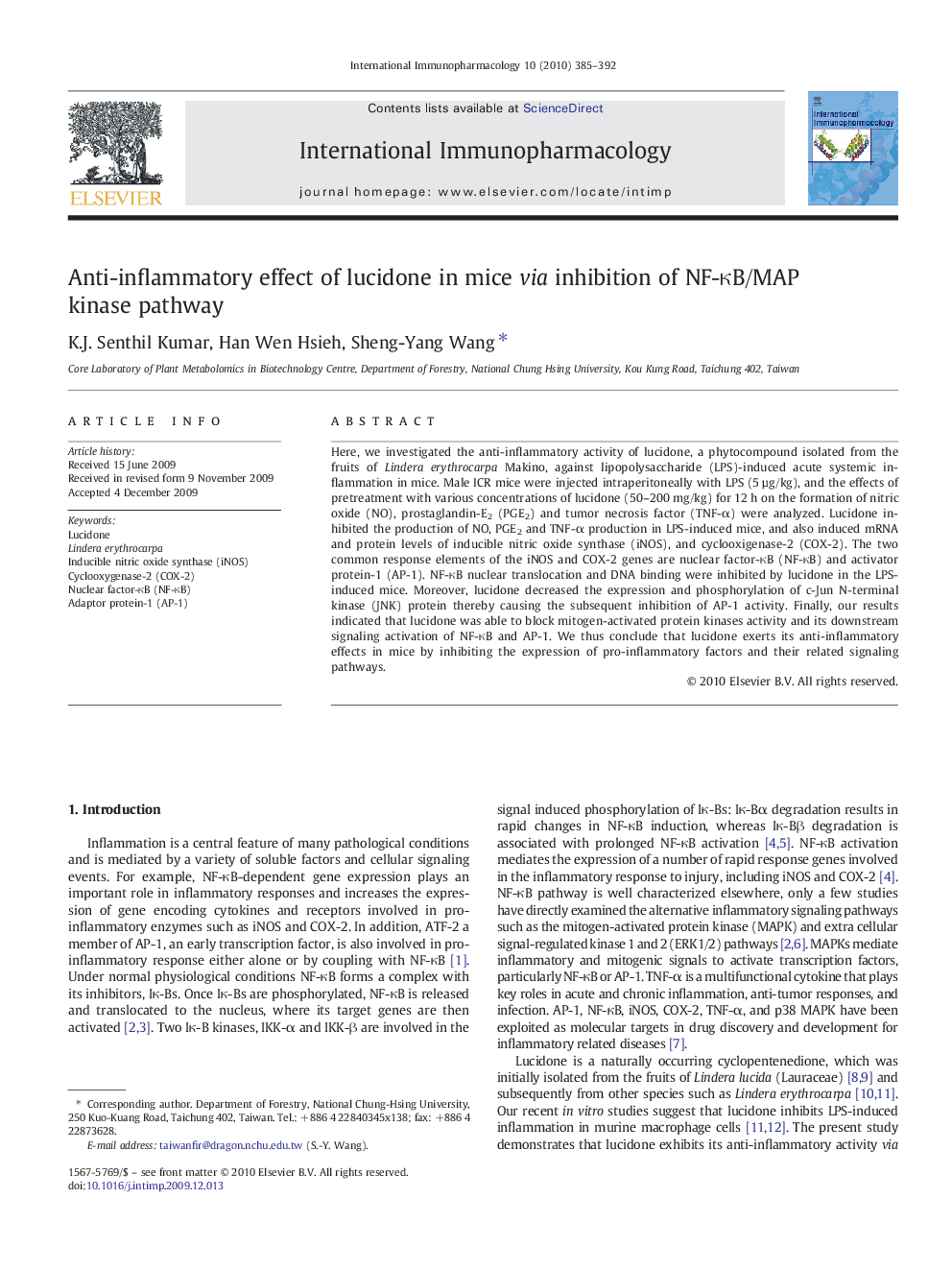| Article ID | Journal | Published Year | Pages | File Type |
|---|---|---|---|---|
| 2541832 | International Immunopharmacology | 2010 | 8 Pages |
Here, we investigated the anti-inflammatory activity of lucidone, a phytocompound isolated from the fruits of Lindera erythrocarpa Makino, against lipopolysaccharide (LPS)-induced acute systemic inflammation in mice. Male ICR mice were injected intraperitoneally with LPS (5 µg/kg), and the effects of pretreatment with various concentrations of lucidone (50–200 mg/kg) for 12 h on the formation of nitric oxide (NO), prostaglandin-E2 (PGE2) and tumor necrosis factor (TNF-α) were analyzed. Lucidone inhibited the production of NO, PGE2 and TNF-α production in LPS-induced mice, and also induced mRNA and protein levels of inducible nitric oxide synthase (iNOS), and cyclooxigenase-2 (COX-2). The two common response elements of the iNOS and COX-2 genes are nuclear factor-κB (NF-κB) and activator protein-1 (AP-1). NF-κB nuclear translocation and DNA binding were inhibited by lucidone in the LPS-induced mice. Moreover, lucidone decreased the expression and phosphorylation of c-Jun N-terminal kinase (JNK) protein thereby causing the subsequent inhibition of AP-1 activity. Finally, our results indicated that lucidone was able to block mitogen-activated protein kinases activity and its downstream signaling activation of NF-κB and AP-1. We thus conclude that lucidone exerts its anti-inflammatory effects in mice by inhibiting the expression of pro-inflammatory factors and their related signaling pathways.
